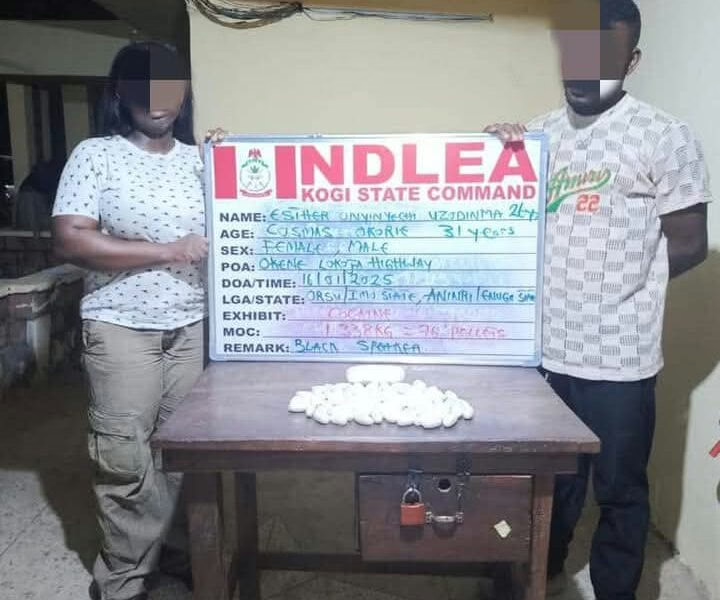The Trade Union Congress has flayed governors over the failure of state houses of assembly to pass the local government autonomy bill in the ongoing constitution amendment exercise.
The TUC Deputy President, Tommy Etim, who described the development as saddening, said the governors were the enemies of the country.
Sequel to the refusal of the states to pass the bill, the Senate on Tuesday directed the Clerk to the National Assembly to transmit the 35 bills that met the requirement of the provision of section 9(2) of the Constitution to the President for assent.
The Red Chamber further called on Gombe, Jigawa, Kebbi, Kwara, Oyo, Plateau, Sokoto, Taraba, and Zamfara assemblies, which had yet to forward their resolutions on the 44 amendments sent to state assemblies, to reconsider their stand on the constitution amendments.
The PUNCH reports that out of the 44 constitution alteration bills forwarded to state assemblies for concurrence, only 35 were endorsed by 27 out of the 36 state legislatures with complete exclusion of financial and administrative autonomy for local government councils.
The constitution amendment bills were forwarded to the states houses of assembly for concurrence in March, 2022.
The Senate stated that section 9(2) of the Constitution of the Federal Republic of Nigeria 1999, as amended, provides that an Act to alter the provisions of the Constitution could be passed only when it is supported by two-third majority of members of the Senate and the House of Representatives and approved by 24 state assemblies.
The constitution demands that at least 24 state assemblies must have passed the bill before the constitution amendment bill is transmitted to the President for assent.
The states that passed the 35 bills include Abia, Adamawa, Akwa-Ibom, Anambra, Bauchi, Bayelsa, Benue, Borno, Cross-River, Delta, Ebonyi, Edo, Ekiti, Enugu, Imo, Kaduna, Kano, Katsina, Kogi, Lagos, Nasarawa, Niger, Ogun, Ondo, Osun, Rivers and Yobe.
Reacting to the development, Etim in a telephone interview with our correspondent said the state parliaments had no moral justification to throw the LG bill away.
He said, “Governors are the enemies of this country. It is highly unfortunate that state assemblies are also culprit in this matter. It shows the kind of individuals that they have.
“For years, local governments, council chairmen have become a rubber stamp. They don’t get anything. Why should state governors be interested in the money that is meant to go to local government councils?
“There is no justification for governors to interfere without allowing them to be autonomous. We keep talking about issues ranging from insecurity to others; how can these be solved when there are no funds? There are things meant to be done by local governments but they can’t and the reason is because there is no money.’’
The National President of the Association of Senior Civil Servants of Nigeria also slammed the National Assembly for ‘’allowing themselves to be used by the governors.’’
He added, “Also, concerning the National Assembly, I am highly disappointed. It is saddening and highly unfortunate that they have allowed themselves to be used by governors.
“If they know they can’t promote bills to protect the common citizens, why are they in the house? Why are they wasting tax-payers funds on unnecessary sittings? It is unfortunate.”
The National Assembly had through its joint Ad-hoc Committee on constitution review in October last year, slammed the state governors for preventing the state legislatures from passing the constitution amendments proposals for financial and administrative autonomy for the 774 local government councils.
Recall that 68 bills seeking to alter provisions of the Constitution were presented at the floor of the Senate and the House of Representatives on February 23, 2022 for passage;
The Senate and the House of Representatives subsequently approved 44 of the bills without difference and were transmitted to the states parliaments for their resolution on March 27.
However, the Senate during plenary on Tuesday went through the 35 items concurred to by the state assemblies and resolved to, in collaboration with the House of Representatives, transmit them for assent by the President, Major General Muhammadu Buhari (retd.).
The Senate’s resolution followed a motion by Senator Opeyemi Bamidele on behalf of the Deputy Senate President, Ovie Omo-Agege, the chairman of the Senate Committee on Constitution Review.
The 35 items read by Bamidele as listed on the order paper include Constitution (Fifth Alteration) Bill No 3 (Change of Names of Afikpo North and Afikpo South Local Government Areas (Ebonyi State); Constitution (Fifth Alteration) Bill No 4 (Change of Name of Kunchi Local Government Area (Kano State); Constitution (Fifth Alteration) Bill No 5 (Change of Names of Egbado North and Egbado South Local Government Areas (Ogun State) and Constitution (Fifth Alteration) Bill No 7 (Correction of the name of Atigbo Local Government Area (Oyo State).
Others are Constitution (Fifth Alteration) Bill No 8 (Correction of Name of Obia/Akpor Local Government Area (Rivers State); Constitution (Fifth Alteration) Bill No 9 (Financial autonomy of State legislatures and State Judiciary); Constitution (Fifth Alteration) Bill No. 10 (Enforcement of Legislative Summon); Constitution (Fifth Alteration) Bill No. 11 (Inauguration of Members-Elect); Constitution (Fifth Alteration) Bill No. 21 (Deletion of reference in the Constitution to the provisions of the Criminal Code, Penal Code, Criminal Procedure Act; Criminal Procedure Code or Evidence Act), Constitution (Fifth Alteration) Bill No. 22 (Provision for Intervening Events in the Computation of Time for the Determination of Pre-Election Petitions, Election Petitions and Appeals therefrom).
It also contained Constitution (Fifth Alteration) Bill No. 24 (Expansion of the Interpretation of Judicial Office); Constitution (Fifth Alteration) Bill No. 25 (Appointment of Secretary of the National Judicial Council); Constitution (Fifth Alteration) Bill No. 29 (Devolution of Powers (Airports)); Constitution (Fifth Alteration) Bill No. 30 (Devolution of Powers (Fingerprints, identification and criminal records).
Also on the list were Constitution (Fifth Alteration) Bill No. 31 (Devolution of Powers (Correctional Services); Constitution (Fifth Alteration) Bill No. 32 (Devolution of Powers (Railways); Constitution (Fifth Alteration) Bill No. 33 (Devolution of Powers (National Grid System); Constitution (Fifth Alteration) Bill No. 39 (Power to enforce compliance of remittance of Accruals into the Federation Account and Review of Revenue Allocation Formula) and Constitution (Fifth Alteration) Bill No. 40 (Independence of Certain Bodies).
The passed bills also include Constitution (Fifth Alteration) Bill No. 41 (Removal of Transitional Law-making Powers of the Executive, Constitution (Fifth Alteration) Bill No. 43 (Domestication of Treaties); Constitution (Fifth Alteration) Bill No. 44 (Timeline for the Presentation of Appropriation Bills); Constitution (Fifth Alteration) Bill No. 45 (Timeframe for the Submission of the Names of Ministerial or Commissioner Nominees); Constitution (Fifth Alteration) Bill No. 48 (Power to summon the President and Governors).
Others are Constitution (Fifth Alteration) Bill No. 49 (Authorization of Expenditure); Constitution (Fifth Alteration) Bill No. 50 (Replacement of the Consolidated Revenue Fund of the Federation with the Consolidated Revenue Fund of the Federal Government); Constitution (Fifth Alteration) Bill No. 51 (Creation of the Office of Accountant-General of the Federal Government), and Constitution (Fifth Alteration) Bill No. 53 (Separation of the office of the Attorney-General of the Federation and of the State from the office of the Minister or Commissioner for Justice).
Some of the nine bills that failed passage at the state parliaments were Abrogation of the State Joint Local Government Account and Provide for special Account into which shall be paid all Allocations due to Local Government Councils from the Federation Account and from the Government of the State; and for Related Matters; Bill on establishment of Local Government as a Tier of Government by Guaranteeing their Democratic Existence, Tenure; and for Related Matters; Bill for Institutionalization of Legislative Bureaucracy in the Constitution and for Related Matters as well as the bill on inclusion of Presiding Officers of the National Assembly in the Membership of the National Security Council.
Others are: To ensure Uniformity in the Retirement Age and pension Rights of Judicial Officers of Superior Courts of Records; and for Related Matters; to Impose the requirement of fair hearing in the process of Recommendation of Removal of Judicial Officers by the State Judicial Service Commission; and for Related Matters; to include Presiding Officers of the National Assembly in the Membership of the National Security Council; and for Related Matters.”











